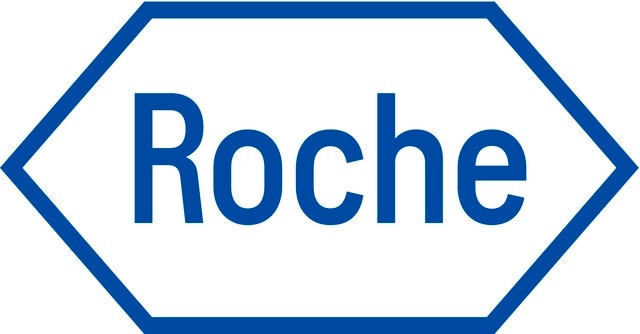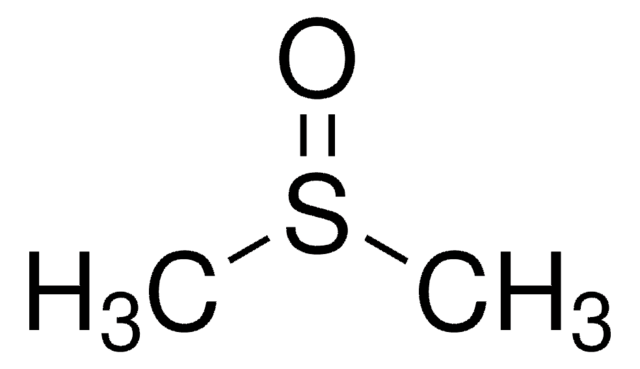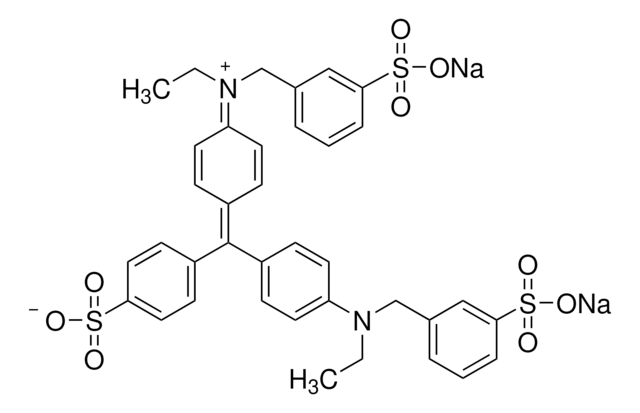추천 제품
제품명
Mitomycin C ready made solution, 10 mg/mL in DMSO, ≥98% (HPLC), Cell culture tested
Quality Level
분석
≥98% (HPLC)
양식
liquid
저장 조건
protect from light
농도
10 mg/mL in DMSO
저장 온도
−20°C
일반 설명
Mitomycin C (MMC) produced by Streptomyces caespitosus is an anticancer antibiotic agent which inhibits proliferation of various cell types in vitro. MMC is DNA alkylating agent, that causes cross linking of complementary DNA strands resulting in: mutagenesis, inhibition of DNA synthesis, initiation of DNA repair events, and activation of apoptosis. Furthermore, MMC has an effect on ribosomal RNA leading to protein synthesis inhibition.
MMC is capable of inhibiting cell proliferation of human or murine embryonic fibroblast cells at concentration range of 0.2-20μg/mL. These treated cells are subsequently used as an adherent feeder layer in long-term culture assays mainly for growth of pluripotent stem cells. Feeder layer cells support the target cells by releasing growth factors to the cell culture and detoxification of the medium. Moreover, feeder layer cells play a role in ECM proteins synthesis that controls cell culture growth. In addition, feeder layer cells are used as a substrate for attachment of the target cells.
MMC also was used for BLC (basal-like cancer) cell line.
MMC as antibiotic agent showed a potent activity against MDR gram-negative bacteria like P. aeruginosa (2 μg/mL), E.Coli (0.5μg/mL) and A. baumannii (16μg/mL). MMC also has a strong activity against gram positive bacteria (0.2μg/mL).
Technical information
1.Mitomycin C ready made solution provides a safer alternative to the powder form by preventing hazardous particles exposure.
2.Please avoid repeated freeze thaw cycles of this product.
3.Mitomycin C solutions are light sensitive and should kept in the dark.
4.It is recommended to keep Mitomycin C solutions at pH 6-7.
5.The recommended concentration of Mitomycin C in cell culture assays is 0.2-20μg/mL. (Ref.8,9,12,13) Therefore, it is recommended to dilute the ready made solution 1:500-50,000.
MMC is capable of inhibiting cell proliferation of human or murine embryonic fibroblast cells at concentration range of 0.2-20μg/mL. These treated cells are subsequently used as an adherent feeder layer in long-term culture assays mainly for growth of pluripotent stem cells. Feeder layer cells support the target cells by releasing growth factors to the cell culture and detoxification of the medium. Moreover, feeder layer cells play a role in ECM proteins synthesis that controls cell culture growth. In addition, feeder layer cells are used as a substrate for attachment of the target cells.
MMC also was used for BLC (basal-like cancer) cell line.
MMC as antibiotic agent showed a potent activity against MDR gram-negative bacteria like P. aeruginosa (2 μg/mL), E.Coli (0.5μg/mL) and A. baumannii (16μg/mL). MMC also has a strong activity against gram positive bacteria (0.2μg/mL).
Technical information
1.Mitomycin C ready made solution provides a safer alternative to the powder form by preventing hazardous particles exposure.
2.Please avoid repeated freeze thaw cycles of this product.
3.Mitomycin C solutions are light sensitive and should kept in the dark.
4.It is recommended to keep Mitomycin C solutions at pH 6-7.
5.The recommended concentration of Mitomycin C in cell culture assays is 0.2-20μg/mL. (Ref.8,9,12,13) Therefore, it is recommended to dilute the ready made solution 1:500-50,000.
주의사항
Light sensitive
물리적 형태
Liquid - In DMSO
Storage Class Code
10 - Combustible liquids
WGK
WGK 2
Flash Point (°F)
188.6 °F - closed cup
Flash Point (°C)
87 °C - closed cup
가장 최신 버전 중 하나를 선택하세요:
L Ponchio et al.
Cytotherapy, 2(4), 281-286 (2002-06-04)
Mitomycin C (MMC), an antitumoral antibiotic, has been described inhibiting the proliferation of different cell types in vitro. Since irradiation is commonly used to stop the cell growth of adherent cells in several experimental models, we aimed to define the
Ronald Domalaon et al.
Frontiers in microbiology, 10, 1556-1556 (2019-07-30)
The lack of therapeutic options to treat infections caused by multidrug-resistant (MDR) pathogens, especially Gram-negative bacteria, is apparent. Therefore, it is imperative to develop new strategies to address the problem of antimicrobial resistance. Repurposing non-antibiotic commercial drugs for antimicrobial therapy
Sarah J Hill et al.
Molecular and cellular biology, 34(20), 3828-3842 (2014-08-06)
Sporadic basal-like cancers (BLCs) are a common subtype of breast cancer that share multiple biological properties with BRCA1-mutated breast tumors. Despite being BRCA1(+/+), sporadic BLCs are widely viewed as phenocopies of BRCA1-mutated breast cancers, because they are hypothesized to manifest
자사의 과학자팀은 생명 과학, 재료 과학, 화학 합성, 크로마토그래피, 분석 및 기타 많은 영역을 포함한 모든 과학 분야에 경험이 있습니다..
고객지원팀으로 연락바랍니다.



